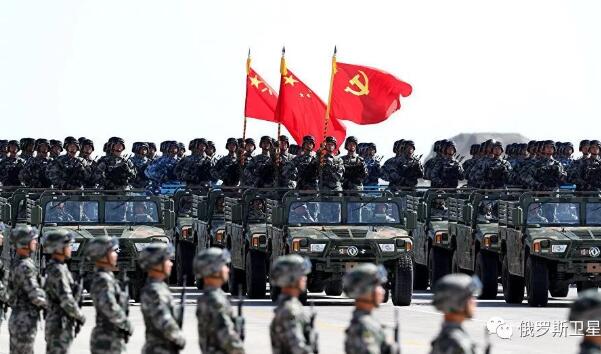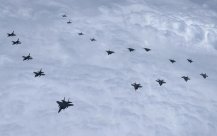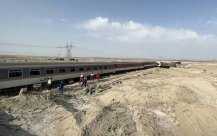
When discussing the prospects of US -China military confrontation, more and more Western experts have used more than 30 years of lack of actual combat experience to prove that China is weak.But how important is this to evaluate the strength of the Chinese army?Russian military expert Vasili Middot; Kashen answered this question in a comment article written for the Russian satellite news agency.
Indeed, at the end of the 1980s, China ended the last few small -scale border conflicts with Vietnam, and then the relationship between the two countries was normalized.After that, the PLA did not participate in the real actual combat operations.During this period, the PLA also carried out remote reconnaissance operations of special forces at most, participated in counter -terrorism operations or crack down on cross -border crimes in Southeast Asia.But this does not change the overall situation, that is, the PLA has not fought for a long time.
In contrast, the U.S. military has been in a continuous military conflict in the past two decades.In addition to the rebellion, they also defeated Iraq in 2003 although they were weak, they had the regular army.The U.S. armed forces have gained valuable experience in transferring a large number of troops to remote theater, troops to support, capture residents' points, and other important aspects of combat operations.
The only question is whether this experience is meaningful to the US -China military confrontation.The stage where the two sides confront each other are likely to be the Pacific Ocean.
During the Cold War, the confrontation center between the Soviet Union and the United States was Europe, and its conflict process (of course, before it might transition to the infinite nuclear war phase), it was determined by the combat situation of the army and the Air Force in this battlefield.The role of the navy is also important, but it is only auxiliary.
Many technologies and tactics used in such wars may be tried in local wars such as the Korean War, the Vietnam War, and the Middle East.For the first time in these wars, many types of weapons have appeared, such as anti -tanks and air defense missile systems, electronic warfare systems, etc.Many tactical methods have been tested in reality and obtained important lessons.
However, China and the United States in the Pacific Ocean are a naval battle. The Army has the role of secondary (even irrelevant), but it needs to make full use of various naval and air combat methods, many of which have never been used.
After the end of World War II, there was a wide -tech comprehensive naval battle, which was the Malaysia War between Britain and Argentina in 1982.However, its scale is also very limited, and it is carried out in the case of extremely unequal military strength on both sides.However, even if this small conflict has become the root of many accidents, important lessons can be learned from it.
The large -scale wars of the two major powers on the Pacific Battlefield will be characterized by the maximum uncertainty and will be carried out between the two navies of the two countries without combat experience. In principleIt has never been used in real large -scale military operations.
The ability to make rapid reactions, adjust plans and change methods anytime, anywhere, and change methods may be the decisive factor that can be won. This first requires all personnel to be brave, aggressive, and initiative.In this case, it is useless to mention the experience of the Navy and the Air Force's participation in the past few decades.In other words, without combat experience may not be able to determine the situation of the PLA in hypothetical large -scale conflicts.We may not have evidence to prove that the Chinese army is weak.It is too early to conclude that the conclusion is too early.What's more, we see the achievement of the modernization of the Chinese army and the achievements of technological modification, combat training, and improvement of the army command system.




